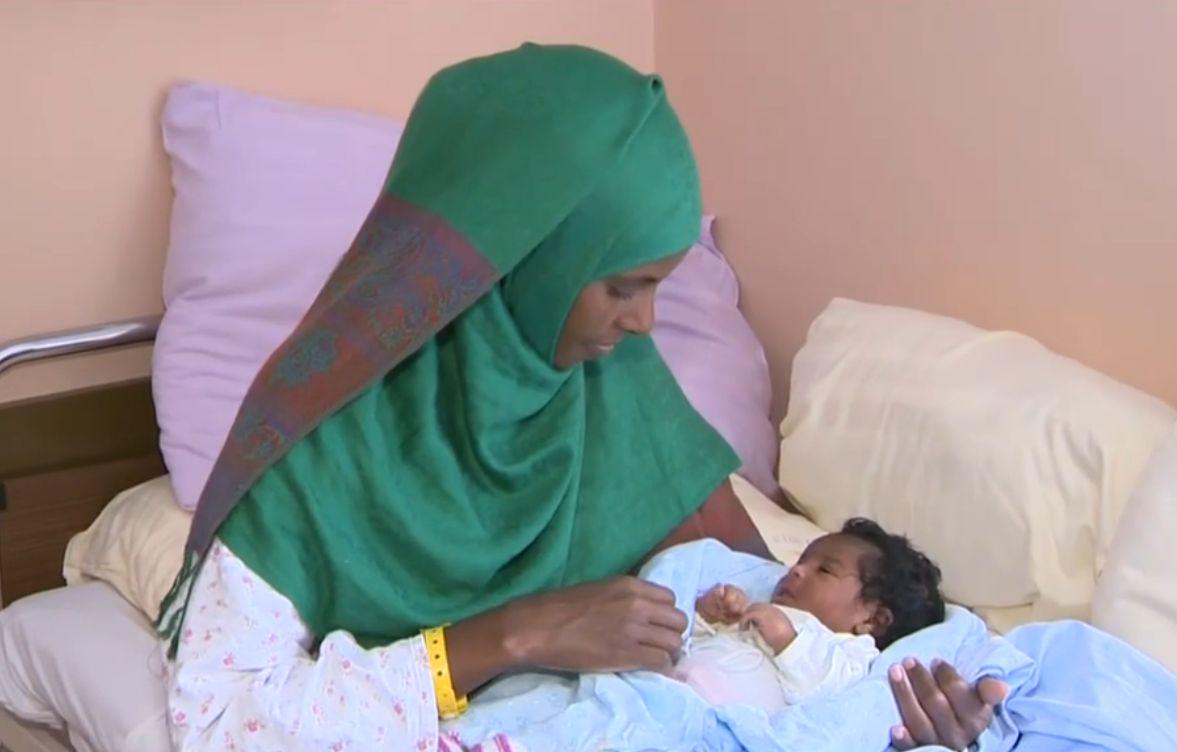
The Somali girl was born several days ago in the maternity ward of the hospital in Jesenice after the police responded to a report of aggressive panhandling and discovered that her mother was giving birth. The mother has already requested asylum in Slovenia, Faila Pašić Bišić of the humanitarian organization UP has confirmed to MMC. When asked about how the girl and her mother are doing, Pašić Bišić replied, "The mom is fine, and the baby girl is even better." She added that the mother has been asking about the Somali community in Slovenia because she would like to get in touch with other Somalis; she has also asked about the bureaucratic process relating to asylum requests – namely, what the process entails and how long it lasts. "She has shown a strong desire for a better life," Pašić Bišić added.
The communication was difficult because the Somali woman speaks a mix of Somali and regionally-accented Arabic, which makes it hard for Arabic translators to understand her. "We now got another translator who is from Somalia and he has helped us to complete the international asylum request," explained Pašić Bišić. Legally, the mother now has the status of an asylum seeker, and after she is released from the hospital – about a week from now --, she will be placed into an asylum facility, where "she will spend several months waiting to learn her fate."
"Unfortunately, hunger and poverty aren't considered sufficient reasons for asylum."
"I sincerely hope that we will show compassion and accept them in reward for making this important move to Europe," said Pašić Bišić, expressing her hope that the asylum request will be granted. However, she has doubts about the outcome because only one or two asylum requests have been granted to Somali refugees in recent years. More attention and priority is given to refugees Syria and Iraq, where war is currently ranging. "Unfortunately, hunger and poverty aren't considered sufficient reasons for asylum to be granted," explained Pašić Bišić.
"I'm happy that we were brought together by such an emotional story, because intellectually, we've already reached a civilizational level that enables us to accept and help these people, but emotionally, we haven't yet developed a bond. When genuine emotions come to the surface, a groundswell of solidary and help follows," said Pašić Bišić when explaining what is needed for the public to embrace a positive approach to refugees.
"Let's not extinguish these people's dreams."
The humanitarian organization UP is collecting contributions that will be distributed to various refugee children born in Slovenia, added Pašić Bišić, who went on to say that the Somali woman and her baby girl will continue to be monitored, ensuring that they will be well cared-for in Slovenia.
In the village of Rateče, where the Somali woman began to give birth, locals have played a very active role in gathering help. "They organized a collection drive, which is a great sign that we still have enough compassion and that we Slovenians won't extinguish these peoples' dreams," appealed Pašić Bišić.
As we have been reporting, police in Rateče were responding to a complaint of aggressive panhandling. At the scene, they discovered that the woman was from Somalia and beginning to give birth. They took her to the hospital in Jesenice, where she later gave birth to a baby girl. Until that point, no refugees had been noticed in the area, but there are quite a few in the nearby Italian town of Tarvisio.
Gorazd Kosmač
Translated by J. B.

































































